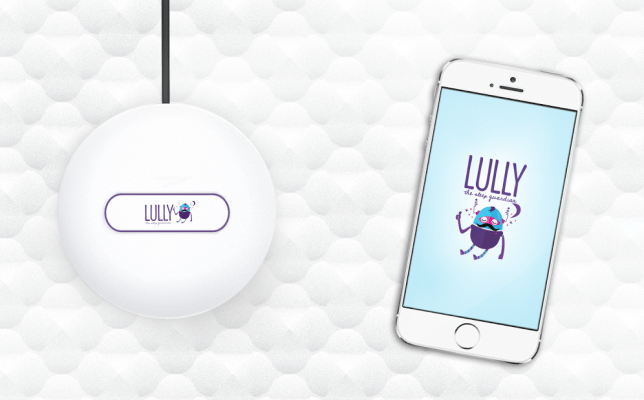Lully cofounder Andy Rink grew up with a twin sister who suffered from night terrors. Each night, like clockwork, she would experience a terrible nightmare, but instead of waking from it instantly like most kids, she had to suffer through it.
That’s why Rink and his cofounder Varun Boriah teamed up to create Lully. After studying sleep patterns at Stanford Biodesign together, the duo took their research to the drawing board and realized that a strong enough vibration, at an easily predictable interval, could actually soothe the child through the potential period of night terror and let everyone in the house sleep peacefully.
Lully is a smart device that goes under the mattress of the child experiencing night terrors. Producing a vibration about 10x stronger than the one in your smartphone, the Lully brings children out of that unhealthy sleep pattern into a lighter sleep, avoiding the whole night terror episode before it even begins.
According to Rink and Boriah, their work at Stanford Biodesign laid the groundwork for the algorithm they use now, which allows them to predict, based on aggregate data as well as input from the parent, when a child will go through that unhealthy sleep pattern. Because of this algorithm, the set up process is quite simple.
Users download the app after placing the device under the child’s bed, at which point they are asked a few simple questions about their child’s usual sleep pattern. From there, Lully notifies the parent at what time they’ll need to activate the Lully (which the founders promise will never be later than 11pm).
Upon being notified, the parent heads into the child’s room, turns on the Lully until they see any movement from the child, and then turn it off. It will run no longer than five minutes itself before shutting off.
The Lully is meant to be used every night for four weeks, which should minimize or eliminate night terrors for the child. However, if the night terrors return, the parent can always bring back the Lully and start over.
The company imagines being able to automate the whole process so that the Lully automatically turns on at the specified time, but for now it’s a manual device.
Lully has raised a total of $920k in seed funding and will soon graduate from the Y Combinator accelerator.
Lully will retail at $169, but the current limited run will go for $129.
